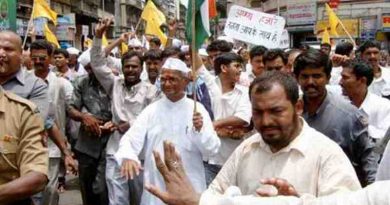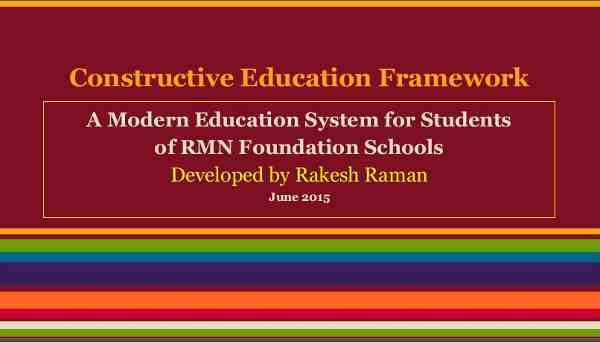Political Shakeout in Delhi Is Good for India
The political shakeout that is now happening in Delhi will usher in a much-needed democratic culture in the country that has seen only the autocratic rulers and dynastic dictators in the past over six decades.
By Rakesh Raman

In the atmosphere of extreme autocracy that has engulfed entire India, the newly formed Aam Aadmi Party (AAP or Common Man’s Party) brings a little flavor of democracy at least for the people of Delhi where it contested the recent Legislative Assembly elections and showed impressive results.
When AAP was invited Saturday, Dec. 14, to form the Delhi government, it asked people of Delhi to decide on its behalf through a list of 18 question that it sent to the traditional parties – Congress and BJP – that mischievously offered unconditional support to AAP.
Hit badly by AAP, both Congress and BJP are once again using their usual tricks to trap the new party by asking it to form the government, while it doesn’t have absolute majority for the same. AAP got 28 seats in the elections, BJP got 32 and Congress just 8.
Now, the party that will form the government needs at least 36 seats in a 70-member Assembly. Obviously, no single party is now in a position to do so and any of these two parties need to join hands to get majority. AAP has always been refusing to take or give support to both traditional parties, saying both BJP and Congress are equally corrupt.
Now, to discredit AAP and put brakes to its rising popularity, both BJP and Congress have offered support while alleging that AAP is running away from its responsibility to serve the people.
In fact, both these parties, known for their corrupt designs, have the hidden objective of withdrawing support to AAP soon after it forms the government, as AAP has been exposing corruption in both these old parties.
AAP smelled the foxy ploy behind their offer and countered them with the 18 questions asking them to give “unconditional support” to all of them. The AAP led by Arvind Kejriwal sent these questions to Congress chief Sonia Gandhi and BJP boss Rajnath Singh to clarify their stand unambiguously on the 18 crucial issues of importance for the people of Delhi.
It also said that if it’s satisfied with the response of Congress and BJP, it will take formal consent from the people of Delhi before forming the government. All the issues that AAP has raised in its letters to BJP and Congress aim to reveal government-sponsored corruption and to empower common people in the process.
AAP has taken an iconoclastic approach, never seen before in India. In the past, political parties have done all types of horse-trading to form governments by hook or by crook. Now going by the principles of true democracy and clean governance, AAP has brought people’s basic needs like drinking water, electricity, education, health care to the center stage while highlighting massive corruption in various government departments run by Congress and BJP.
The 18-point letter signed by AAP chief Kejriwal is written in curt Hindi language. In the letter, Kejriwal begins by saying that his AAP party was formed to counter the corrupt, criminal, and communal politics of parties like BJP and Congress.
The 18 issues that AAP has raised include decentralization of governance, giving power in the hands of common people even up to the level of housing colonies, passage of a strong Lok Pal bill to stop corruption, auditing of the electricity companies that have been conniving with the government in secret deals to plunder people with inflated bills, dealing with the government-supported water mafia so water could be freely supplied to households, and so on.
Among the other points in its letter, AAP demands support for creating a conducive environment for businesses to flourish, putting an end to the existing government policies that force business people to bribe government officials to get even their genuine work done.
Foreign direct investment (FDI) in retail sector, support to farmers in Delhi villages, education reforms with the regulation of spiraling private school fees, opening of new government hospitals for the poor, safety for women in Delhi, are among the other conditions on which AAP has demanded unconditional support from BJP and Congress.
Obviously, both the traditional parties won’t accept the conditions that AAP has listed in its letter because these conditions favor the common man and spell doom for corrupt politicians and bureaucrats. Congress and BJP are not used to such a clean political environment while corruption has been their lifeblood.
Under the given circumstances, it’s likely that Delhi would soon go to polls again. But if BJP and Congress really care about the people and wish to have a government in place quickly to avoid reelection, why can’t both of them (BJP and Congress) join hands instead of luring AAP? What’s wrong there?
Thanks to AAP, the political shakeout that is now happening in Delhi will usher in a much-needed democratic culture in the country that has seen only the autocratic rulers and dynastic dictators in the past over six decades. And that will be good for the Aam Aadmi (commoner) of India.
By Rakesh Raman, the managing editor of RMN Company.
You also can read: More Articles by the RMN Editor, Rakesh Raman






